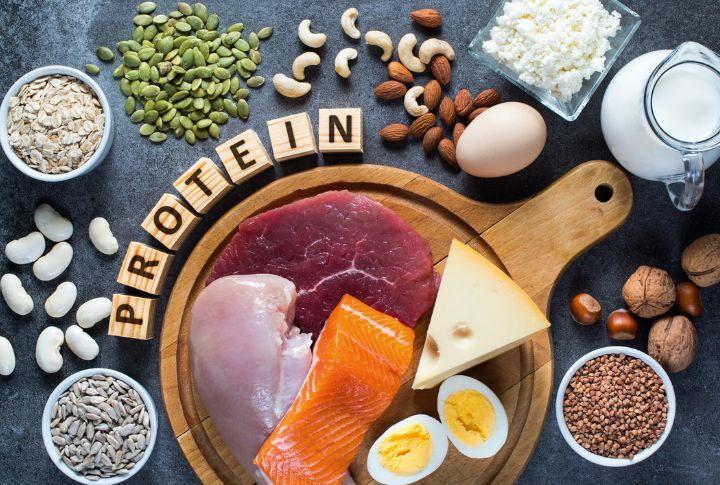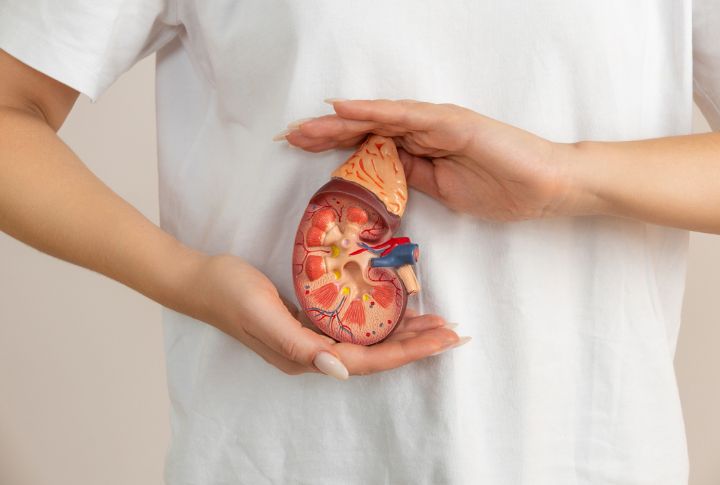
High-protein diets have always been popular, with many claiming they can help boost metabolism, increase satiety, and promote muscle growth. However, there are concerns about the potential risks and drawbacks of consuming too much protein. Before jumping on the high-protein bandwagon, weighing the pros and cons to determine if this type of diet is a good fit for your health and lifestyle is essential.
Pros: Muscle Growth and Repair

Protein in the body is the building block of muscle tissue vital for muscle growth and repair. A high-protein diet provides amino acids to support muscle development, especially when combined with resistance training.
Pros: Increased Satiety

Foods that are high in protein are more satiating than carbohydrates or fats. Cheese, beans, and red meat that contain protein can curb hunger and reduce calorie intake. If you include protein-rich foods in your meals and snacks, you’re less likely to experience cravings and overeat.
Pros: Metabolic Boost

High-protein foods have a more significant thermic effect than fat or carbohydrates, so your body burns more calories by digesting and metabolizing protein. Eating more protein can increase energy expenditure and aid in weight loss or maintenance.
Pros: Blood Sugar Regulation

A high-protein diet helps stabilize blood sugar levels by slowing glucose absorption. It can prevent spikes and crashes in your blood sugar, reduce cravings, and promote steady energy levels throughout the day.
Pros: Supports Bone Health

Proper protein intake is essential for maintaining bone health and preventing age-related bone loss. Protein provides the building blocks for bone tissue and essential minerals like calcium and phosphorus.
Pros: Improved Body Composition

Diets high in protein have been shown to improve fat loss while preserving lean muscle mass, resulting in a favorable shift in body composition. This can lead to a toned physique with a reduced body fat percentage.
Pros: Enhanced Recovery

Protein plays an important role in post-exercise recovery by repairing damaged muscle tissue and replenishing glycogen stores. Consuming protein after a workout can boost recovery, reduce muscle soreness, and improve exercise performance.
Pros: Nutrient Density

Many protein-rich foods are also rich in essential vitamins, minerals, and micronutrients, adding nutritional value to your diet. Focusing on protein sources like lean meats, fish, eggs, and legumes will meet your protein needs and boost your nutrient intake.
Cons: Kidney Strain

High protein intake can put added strain on the kidneys, especially in people with pre-existing conditions. Excessive protein consumption may contribute to kidney damage or impaired kidney function over time.
Cons: Digestive Discomfort

Some people may experience digestive discomfort, such as bloating, gas, or constipation, when consuming large amounts of protein. This can be due to inadequate fiber intake or difficulty digesting specific protein sources.
Cons: Nutrient Imbalance

Focusing too heavily on protein-rich foods may lead to nutrient imbalances, as other essential nutrients may be neglected. Maintain a balanced diet and add a variety of ingredients from all food groups to ensure adequate nutrient intake.
Cons: Potential for Weight Gain

While protein itself is not inherently fattening, consuming excess calories from protein-rich foods can contribute to weight gain if not balanced with energy expenditure. Control portion sizes and overall calorie intake when following a high-protein diet.
Cons: Risk of Dehydration

High protein diets can increase the body’s need for water, as protein metabolism produces waste products that must be excreted through urine. Failure to adequately hydrate can lead to dehydration, especially if coupled with intense exercise or hot weather.
Cons: Increased Risk of Chronic Disease

Some research suggests that high protein diets, particularly those high in animal protein, may be associated with risks of certain chronic diseases, like heart disease, cancer, and diabetes. However, more studies are needed to fully understand these potential associations.
Cons: Social and Environmental Impact

Following a high-protein diet that relies on animal protein can have social and environmental implications. It may be more expensive and less sustainable than plant-based or balanced diets, and it may limit food choices in social settings or cultural contexts.
